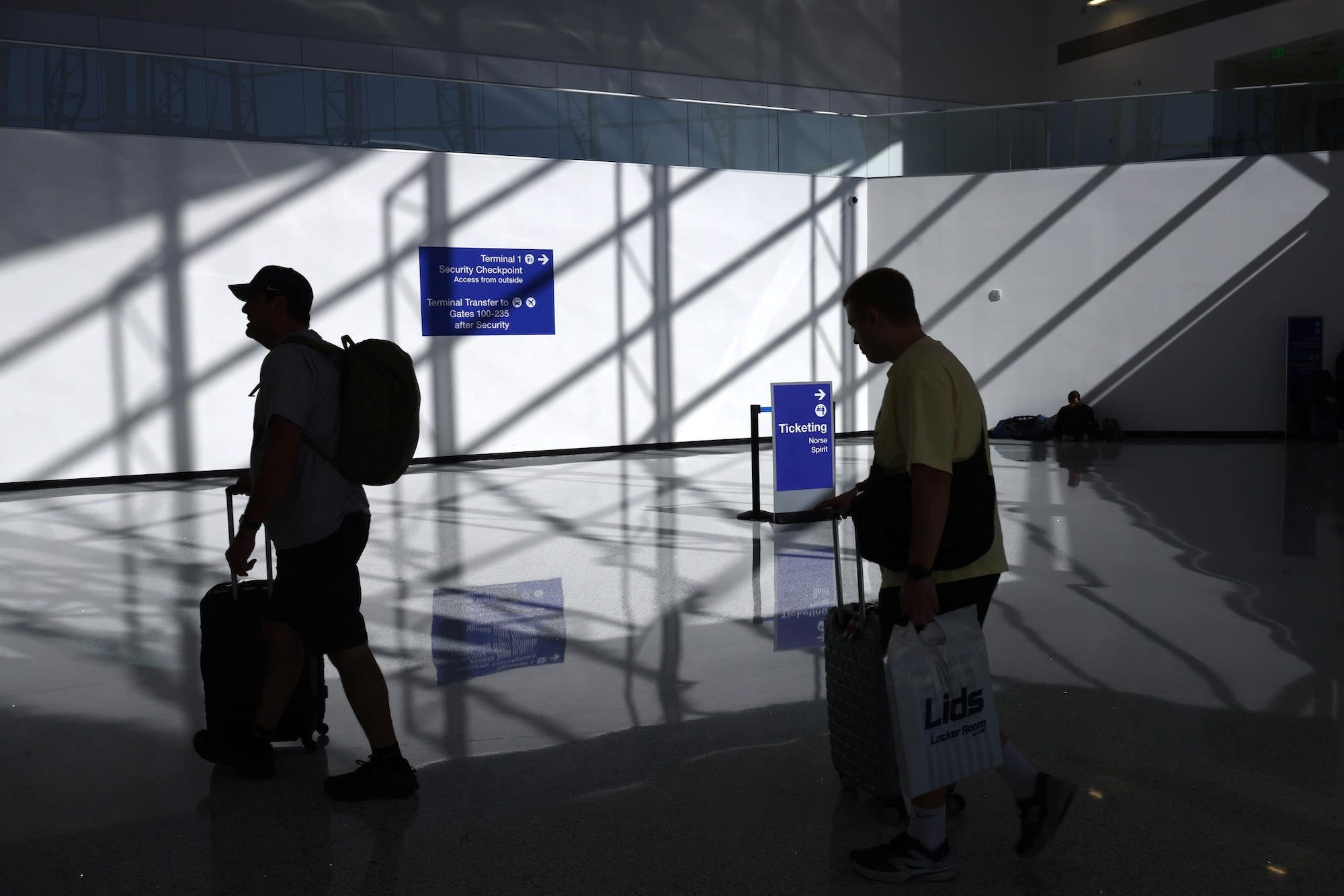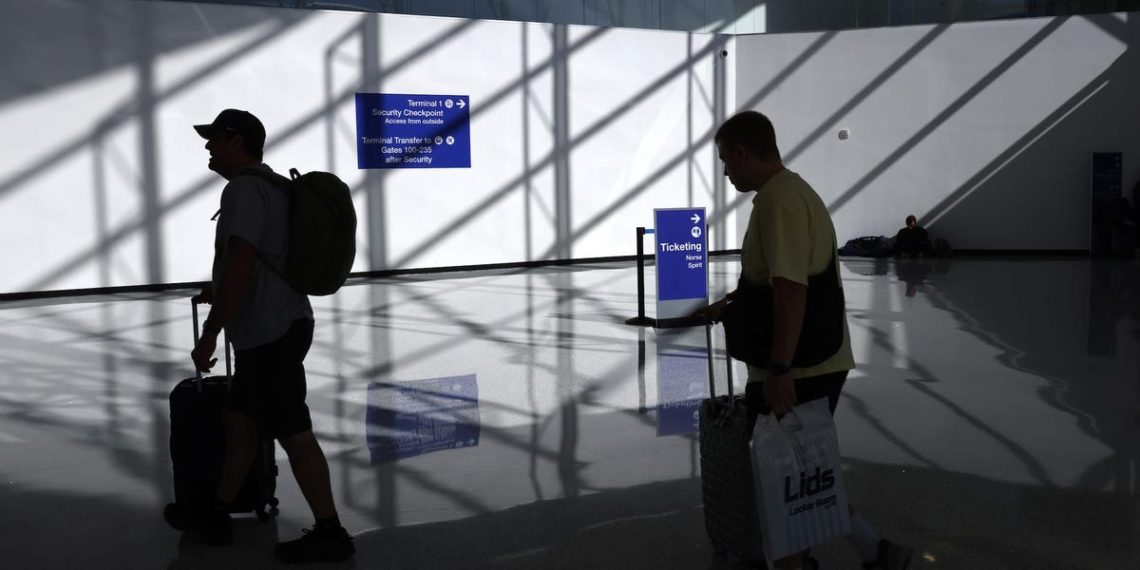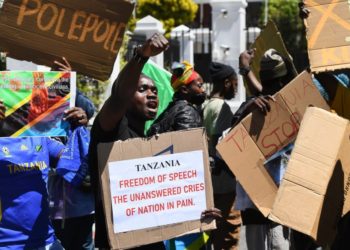
Genaro Molina/Los Angeles Times via Getty Images
- Federal officials will cut 10% of flights at 40 US airports starting Friday.
- The reduction is due to air traffic control delays from the ongoing government shutdown.
- Up to 1,800 flights, affecting 268,000 seats, could be impacted, says Cirium.
Holiday travel is starting to look incredibly dicey.
The shutdown so far has created massive air traffic control delays, leaving some airports so understaffed that they had to temporarily shut down. Starting on Friday, federal officials will reduce 10% of flights at 40 US airports to manage traffic.
Four airports — Charlotte, Boston, Seattle, and Philadelphia — confirmed to Business Insider that they are among those temporarily losing some service.
The FAA has not yet released an official list of all affected airports. The aviation analytics company Cirium compiled a list of 100 major airports that are among the most likely to be included.
It said that up to 1,800 flights representing about 268,000 seats could be cut on Friday.
Here’s the full list from Cirium:
- Chicago O’Hare International Airport
- Hartsfield—Jackson Atlanta International Airport
- Dallas/Fort Worth International Airport
- Denver International Airport
- Los Angeles International Airport
- Charlotte Douglas International Airport
- Phoenix Sky Harbor International Airport
- George Bush Intercontinental Airport
- Harry Reid International Airport
- John F. Kennedy International Airport
- Orlando International Airport
- Seattle—Tacoma International Airport
- Newark Liberty International Airport
- Miami International Airport
- LaGuardia Airport
- San Francisco International Airport
- Boston Logan International Airport
- Ronald Reagan Washington National Airport
- Detroit Metropolitan Wayne County Airport
- Minneapolis—Saint Paul International Airport
- Philadelphia International Airport
- Washington Dulles International Airport
- Nashville International Airport
- Salt Lake City International Airport
- San Diego International Airport
- Fort Lauderdale—Hollywood International Airport
- Baltimore/Washington International Thurgood Marshall Airport
- Austin—Bergstrom International Airport
- Tampa International Airport
- Portland International Airport
- Raleigh—Durham International Airport
- Daniel K. Inouye International Airport (Honolulu)
- St. Louis Lambert International Airport
- Chicago Midway International Airport
- Dallas Love Field
- Sacramento International Airport
- William P. Hobby Airport (Houston)
- Louis Armstrong New Orleans International Airport
- Luis Muñoz Marín International Airport (San Juan)
- Kansas City International Airport
- Indianapolis International Airport
- Pittsburgh International Airport
- San José Mineta International Airport
- John Wayne Airport / Orange County
- John Glenn Columbus International Airport
- Cleveland Hopkins International Airport
- San Antonio International Airport
- Cincinnati/Northern Kentucky International Airport
- Southwest Florida International Airport
- Oakland International Airport
- Palm Beach International Airport
- Ted Stevens Anchorage International Airport
- Hollywood Burbank Airport
- Charleston International Airport
- Jacksonville International Airport
- Kahului Airport
- Ontario International Airport
- Milwaukee Mitchell International Airport
- Richmond International Airport
- Boise Airport
- Memphis International Airport
- Omaha
CBS News and The Washington Post shared a list of 40 potentially affected airports, citing unnamed sources.
Business Insider contacted the airports on the list. Some airports — like Indianapolis, Fort Lauderdale, Los Angeles, Memphis, Detroit, and those in the Houston, New York, and Dallas areas — told Business Insider they were aware of the planned cuts but were not yet notified they were on a list and referred BI to the government and the airlines.
Minneapolis airport told Business Insider that operations are normal as of Thursday, but said “if reductions are enacted, travelers should be prepared for flight disruptions” at Minneapolis and other airports across the US.
The affected airports are subject to change. The FAA and the Department of Transportation did not immediately respond to a request for comment.
The affected airports are subject to change. The FAA and the Department of Transportation did not immediately respond to a request for comment.
Holiday travel snarls
The reductions come at an especially bad time, as the busy Thanksgiving and Christmas travel seasons approach. And there appears to be some scrambling among the government, airports, and airlines to determine what can be shaved with just a few days’ notice.
Some airlines have given customers a general idea of what to expect, but details are scarce.
Frontier Airlines told Business Insider that most of its flights are expected to “operate as planned” come Friday, but will proactively communicate with customers as changes occur. It did not offer exact routes. Southwest similarly said it did not yet have specific figures.
United CEO Scott Kirby gave some information in a Wednesday statement, saying none of the airline’s long-haul international or hub-to-hub flights would be affected. Instead, he said reductions will be on regional routes — which connect hubs to smaller airports — and domestic mainline flights that do not travel between hubs.
United has seven main hubs in the mainland US: Chicago, Denver, Houston, Los Angeles, Newark, San Francisco, and Washington Dulles. It also has a hub in Guam.
Cirium data estimates that Chicago O’Hare, if on the list, would be the most affected airport on Friday, with 121 flights canceled across all airlines. Atlanta — where Delta has its major hub — would be second at 104 flights.
Customers should prepare for disruptions
The schedule adjustments have created uncertainty for travelers, and some industry experts advise that travelers should prepare for longer lines and potential delays.
“If you’re checking bags, plan for long lines with extra time at the airport, and pack any valuables or time-sensitive items in your carry-on,” Audrey Kohout, Co-CEO of luggage shipping companies LuggageForward and LugLess, said in a media statement.
For those whose flights get canceled, in most cases, airlines would try to rebook them on an alternative flight.
American, Delta, Frontier, and United have said that customers will be able to change or refund their flights at no extra cost.
Southwest said that passengers whose flights are canceled will be eligible for a refund. As of noon ET, Alaska does not have a flexible travel policy in place.
Some airline CEOs are already warning people to prepare for the worst: “If your flight is canceled, your chances of being stranded are high, so I would simply have a backup ticket on another airline,” Frontier Airlines CEO Barry said in a LinkedIn post.
Read the original article on Business Insider
The post Here are the airports that could be affected by the 10% flight reduction appeared first on Business Insider.




